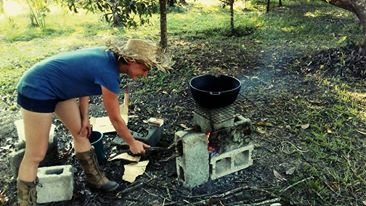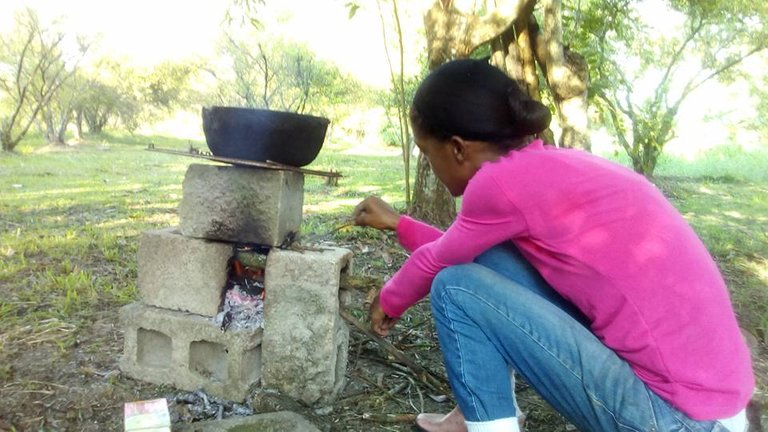Coconut oil has found its place as the wondernut of the organic world. We're obsessed with it, advised by organic visionaries worldwide to use it on our hair, as a medicine to clean out our lungs, as a moisturiser for an all-over smooth finish, and to increase our heart health and lower cholesterol.
Now, while I am a huge advocate for coconut oil, I find the usual marketing dramas of fads to be particularly honed in on coconut oil. Obviously, as its growth is limited to countries with hot climates, its price is absolutely driven by the transportation it takes to conveniently appear in a store near you. However, the extra tags banging on about how its supreme quality 'hand-made' 'home-made' 'all-natural' 'dipped in gold', drive the prices up to become a product that can only be accessed by yummy mummy middle-class yoga bunnies with more spare cash than the GDP of many developing countries. And while I'm not saying these people don't have the right to this product, they shouldn't have the monopoly. So in true permaculture style, we look to the homesteading techniques of doing it ourselves.

Recently, I've been in the Dominican Republic. My boss, Carolina, decided one day that we would make coconut oil. I had always been under the impression that making oil was a cumbersome and frankly too difficult task for the likes of me, despite never having actually researched the process. I found out, however, that pretty much every Dominican woman knows how to make coconut oil, as they use it for their hair. Not only that, they all know how to make ingenus little make-shift rocket stoves to do it!

This is why I'm on this journey though, isn't it. To learn the cultural practices and hands-on skills that are utilised by varying peoples worldwide, to enhance their lives and remain self-sufficient to a certain extent. I'm like an art curator, collecting these skills in the basket of my brain, creating an encyclopedia of self-sustainability in my mind, and then sharing it with all of you.
So, despite the self-imposed barrier imagining the difficulty of making coconut oil, it's quite a simple process. Here's how you can do it at home:
You will need:
Two coconuts
Water
A heating device
A sieve
If you want to get super rudimental like we did, you can do this in a self-made rocket stove, or as I watched local all-round handy-lady, Lucia, you can make it over an open fire.
You need the nut of the coconut. So if it's still inside the green/yellow outer shell, you need to remove this. Next you have to remove that hairy, brown layer on the outside.
Grate the coconut with a cheese grater. Grating it gives you smaller pieces which increases the surface area, allowing the oil to be extracted more easily. Keep that coconut in a heatproof bowl.
(At this point, thinking I was some kind of authority on innovation, I asked why they didn't just put the coconut in a blender, to which they laughed and laughed and laughed. The reason is because you would need to add water which dilutes the oil and makes it harder to extract the oil as a pure substance. They also pointed out that if it was easier to blend it, didn't I think they would be doing exactly that. Fair point.)
Heat the water in a large pan. You will need enough water that it generously covers all the coconut shreds, but there's no hard and fast rules for the quantity; mainly because it's going to evaporate.
Once the water begins to boil, take it off the heat and pour it over the coconut. Cover this for about 10 minutes.
Remove the lid and let the coconut and water stand until the water cools off. It doesn't need to be completely room temperature, make sure its still a little warm, but not too hot. This soaking and cooling should take about 20-30 minutes.
Now, get the pan you used for heating the water. You wanted to strain the coconut so that all the water goes into the bowl. Get physical with this, ladies and gents. Really get your hands in and there squeeze the liquid out of the coconut. While not necessary, the wonderful lady I did this with, squeezed everything out and put the coconut back for a minute and did it all over again.
Set the coconut aside, and put the pan back on the heat without a lid.
You need to heat until the water evaporates. As it heats up, the oil and water will separate with the oil settling on top of the water, like the science experiments we did as kids.
Once all the water is evaporated, you'll be left with oil. Make sure you're paying attention here as you don't want to heat the oil, so be ready to take it off the heat when the water gets to a low level and you can skim the oil off the top.
This oil will be a very light brown colour and will have a much nuttier smell than regular coconut oil, but it works wonders. I've been using it for a few weeks now and my skin is so soft, I'm scared I'm going to slide off most seats I sit on!
If you really want to get your permaculture on and stack those functions, you can dry the coconut shreds out and use them as a sprinkling for your morning granola. Alternatively, we fed the scraps to the chickens who were more than grateful to snap up that tropical treat!
Gotta comment here,, i see you call it the wondernut,,,, but coconut isnt actually a nut, its a fruit.
Interesting! I was always under the impression it was a nut, I guess just because of what people say. I just looked it up though and you know it can be classed as all three, a fruit, a nut, and a seed. What a mysterious ball of joy! Thanks @ewasteguy1!
I only know this cause im deadly allergic to nuts, and i can eat coconut lol so thats what a doctor told me is that its a fruit not technically a nut and that,,, that is why i can have it
CONGRATULATIONS!
Your post is featured in my FRIDAY DIY DAY- CURATION 12 post!
@goldendawne Thank you so much for selecting me and for your support. Starting this is a new journey for me and to have support from those around me really gives me a great boost and keeps me grounded in gratitude! Thanks!
howdy from Texas @permieemmy I enjoyed this post, this can save alot of us some good money, great job and thank you!
@janton Howdy from Bangkok. Thanks for the kind words and I hope it helps you out. You can use this same process for avocado seed oil too :)
oh that's very interesting. I don't know anything about avocado seed oil, is it as healthy as coconut oil?
Too right! It's super healthy actually: https://www.curejoy.com/content/avocado-seed-benefits/
In fact, you can use this method mashing the pulp of the avocado too, to make avocado oil!
thank you so much @permieemmy for the information! Do you grow alot of your own food, are you in the country?
I try to wherever I am. I'm in Bangkok right now and I'm trying to grow on my balcony but it's hard. I think it's to do with the pollution if I'm honest, which is a real shame. Do you grow your own food?
You are not a citizen of Thailand?
Don't they have alot of good fresh produce there?
How bad is the pollution? that is sad to hear, not healthy to be there long.
No my wife and I don't grow our own food at the moment but perhaps in the
future. thanks so much for responding back!
@permiemmy great post followed and upvoted keep up the great work!
@digitaldan Thanks for the upvote and the support. Enjoy giving it a go!
Seems pretty simple. What a neat experience though. I probably would have said the same thing about the blender LOL
@permieemmy Thank you for sharing with us.
@tryskele It's surprisingly simple and I did really enjoy it. I felt like a bit of a dope for saying it but you never learn unless you ask (what are apparently stupid) questions! Thanks for the vote :)